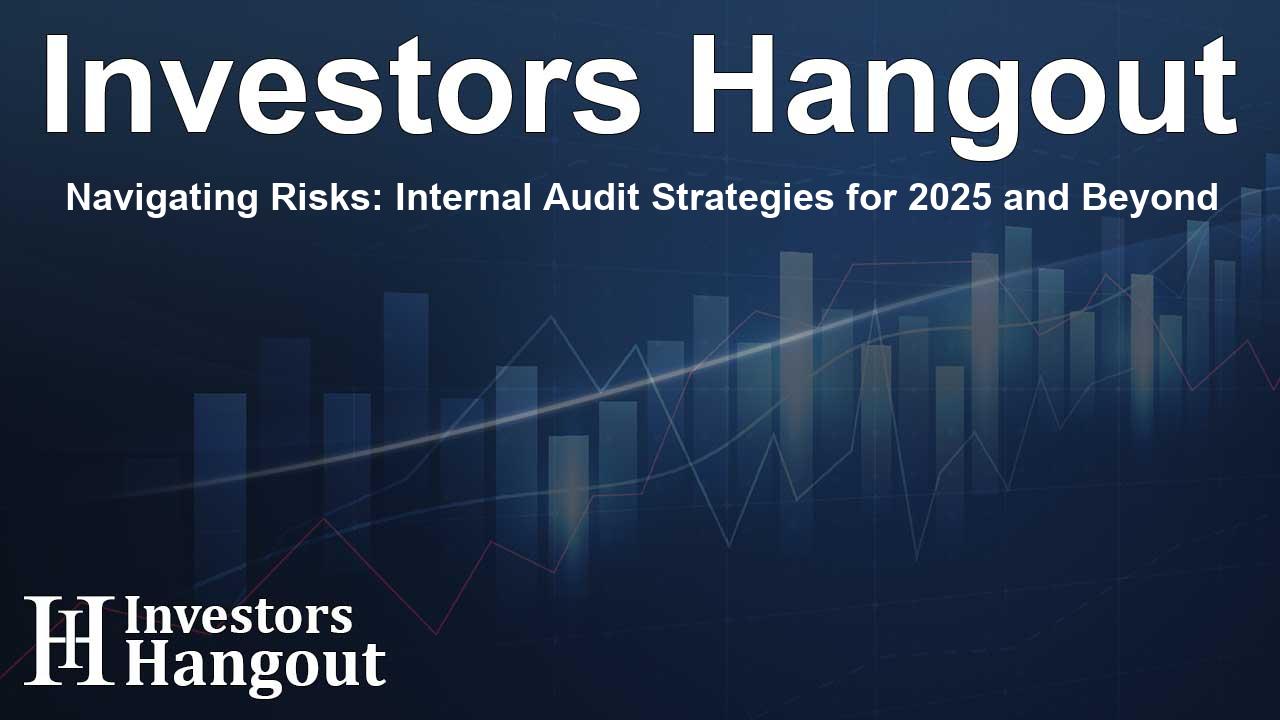Navigating Risks: Internal Audit Strategies for 2025 and Beyond

Understanding the 2025 Internal Audit Landscape
The internal audit landscape is quickly evolving, influenced by major drivers such as cybersecurity, advancements in artificial intelligence (AI), and economic unpredictability. Organizations are now more than ever reliant on robust audits to navigate these complexities, as highlighted by a recent survey conducted by Jefferson Wells.
Cybersecurity: The Ongoing Challenge
For five consecutive years, cybersecurity has dominated the risk landscape, marking itself as the top emerging risk for internal audit teams. The increasing reliance on digital infrastructure has magnified vulnerabilities, compelling organizations to reassess their cybersecurity posture persistently. The growing array of cyber threats makes it paramount for audit leaders to implement stronger defenses, ensuring data integrity and organizational resilience.
Crisis in Cyber Defenses
The sobering reality is that many organizations face deficits in their cybersecurity capabilities. Audit leaders have echoed this need, recognizing that a proactive, well-resourced cybersecurity strategy is no longer optional but essential for mitigating threats and maintaining stakeholder confidence.
AI: A Double-Edged Sword
Artificial intelligence, while presenting numerous opportunities, also brings significant challenges into the fold. The emergence of generative AI has pressured internal audit functions to adopt new tools and methodologies, reshaping their responsibilities. Audit teams are now tasked with integrating AI into risk management frameworks, addressing both the potentials for enhanced efficiency and the risks of algorithmic bias or data privacy breaches.
Redefining Audit Methodologies
As organizations strive to leverage AI's capabilities, internal audit teams are rethinking their strategies. They are focusing on developing skill sets that can effectively assess AI-driven processes, ensuring that audits remain relevant in a technology-driven future.
Economic Uncertainty: A New Concern
The uncertainties of the global economy have recently surfaced as a new, pressing concern. According to the survey, economic uncertainty was highlighted by 26% of internal auditors, which is a stark increase from previous years. This shift illustrates the growing recognition that external economic factors significantly impact organizational risk profiles.
Strategies for Economic Resilience
In light of economic instability, audit teams are increasingly expected to play a pivotal role in organizational resilience. This includes analyzing how economic shifts influence operational strategies and financial performance, enabling organizations to adapt quickly to changing market conditions.
Addressing Skills Gaps in Audit Teams
As organizations grapple with these risks, the shortage of skilled talent in critical areas such as cybersecurity, data analytics, and AI is a major hurdle for internal audit departments. The survey indicates that over 85% of audit leaders are turning to external partners to supplement their capabilities. Collaborating with external experts allows audit teams to navigate their skill gaps effectively.
Building a Future-Ready Internal Audit Function
In this era of rapid change, internal audit teams must continually evolve. By enhancing internal capabilities and leveraging external expertise, audit departments can better position themselves to meet the demands of an ever-complex risk environment.
Conclusion
In conclusion, as organizations face the confluence of cybersecurity challenges, the influx of AI, and growing economic uncertainty, internal audit teams must remain agile to maintain operational integrity. The evolving audit landscape calls for a dedicated focus on skill enhancement, strategic foresight, and collaboration with external partners. Embracing these changes will undoubtedly set the stage for robust governance and sustainable growth.
Frequently Asked Questions
What are the top risks for internal audit teams in 2025?
The primary risks identified include cybersecurity threats, artificial intelligence implications, and economic uncertainty, which significantly impact audit strategies.
Why has cybersecurity remained a top concern for auditors?
Cybersecurity remains a top concern due to the continuous evolution of cyber threats, which increase the need for strong defenses and effective risk management strategies.
How is AI affecting internal audit practices?
AI is reshaping internal audit practices by introducing new tools for risk assessment and requiring teams to adapt their methodologies to leverage these technologies effectively.
What should internal auditors do to address skills shortages?
To address skills shortages, internal auditors should seek external partners for collaboration, investment in training, and continuous development of team competencies.
How can organizations ensure their audit teams are prepared for future challenges?
Organizations can prepare their audit teams by fostering a culture of continuous learning, investing in emerging technologies, and remaining agile in adapting to evolving risks.
About The Author
Contact Hannah Lewis privately here. Or send an email with ATTN: Hannah Lewis as the subject to contact@investorshangout.com.
About Investors Hangout
Investors Hangout is a leading online stock forum for financial discussion and learning, offering a wide range of free tools and resources. It draws in traders of all levels, who exchange market knowledge, investigate trading tactics, and keep an eye on industry developments in real time. Featuring financial articles, stock message boards, quotes, charts, company profiles, and live news updates. Through cooperative learning and a wealth of informational resources, it helps users from novices creating their first portfolios to experts honing their techniques. Join Investors Hangout today: https://investorshangout.com/
The content of this article is based on factual, publicly available information and does not represent legal, financial, or investment advice. Investors Hangout does not offer financial advice, and the author is not a licensed financial advisor. Consult a qualified advisor before making any financial or investment decisions based on this article. This article should not be considered advice to purchase, sell, or hold any securities or other investments. If any of the material provided here is inaccurate, please contact us for corrections.
